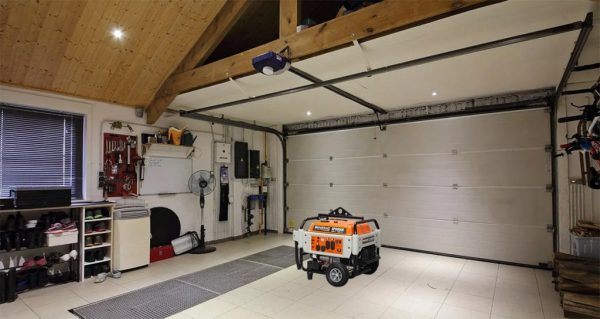Running a generator in your garage can be dangerous and costly, but if you know the right steps to take, it can be done safely. Learn more about safety procedures when using a gas generator in your garage with this blog that provides an overview of all the steps that should be taken before starting a generator, and after it is turned off.
Safety Tips to Run a Generator
When it comes to running a generator in your garage, there are a few safety tips you should keep in mind. Here are four tips to help you safely run your generator:
1. Read the directions carefully before starting the generator. Make sure you understand all of the safety precautions and how to properly operate the machine.
2. Wear properly fitted protection such as safety glasses and hearing protection when operating the generator. If you are using a natural gas or propane engine, be aware of the possible dangers of gas fumes and fire. Have a look at the fruit decoration ideas.
3. Keep a bucket close by in case of accidental spark or obstruction while operating the generator. Also make sure to have a fire extinguisher on hand in case of fire.
4. Check that the power cord is properly plugged into an outlet before starting the machine. And lastly, remember to turn off the machine when you finish using it!
What to Get Before You Start Running a Generator in Your Garage
Before you start running a generator in your garage, make sure to get the necessary items. Here are some things to consider:
1) Check your local power company’s guidelines first. Some municipalities have specific regulations about how and when generators can be run.
2) Make sure you have an approved generator set-up and safety plan in place. This includes knowing how to operate the machine safely and understanding the basics of electrical wiring and safety.
3) Get a portable generator backup battery. A good backup battery will keep your machine running in case of a power outage.
4) Have an understanding of the wattage of your generator. Not all generators are created equal and some can handle more wattage than others. Be aware of the power output capabilities of your chosen machine before making a purchase.
Important Things You Need to Know When Running a Generator in Your Garage
When you’re running a generator in your garage, there are a few important things you need to know to ensure your safety. Here are four tips to keep in mind:
1. Make sure the generator is properly secured – A loose generator can cause serious injury if it falls or crashes. Make sure the generator is anchored to the ground and properly bolted down.
2. Clean up any debris – If the generator produces sparks or flames, be sure to clean up any debris that may have been created. This includes anything that might have been thrown into the air by the engine, like pieces of metal.
3. Dress appropriately – When running a generator in your garage, it’s important to dress appropriately for the weather conditions. Wear sturdy shoes and clothes that will protect you from electricity and sparks.
4. Use caution when moving the generator – Be careful when moving the generator around – even small movements can cause it to fall or crash. Keep children away from the machine at all times. You can cut grass with scissors.
How to Survive if the Power Goes Out While Running a Generator in Your Garage
As the temperatures drop and the mercury climbs, one of the best ways to stay warm is to have a generator running in your garage. However, there are a few things you need to know in order to ensure a safe and successful run of your generator. Here are four tips for running your generator safely in your garage:
1. Make sure your generator is properly maintained. Keep its oil level high, check the carburetor for kinks or clogs, and make sure it’s running smoothly.
2. Have an evacuation plan before the power goes out. Have your family members know where you are going and what you are going to do if the power goes out. Also have a list of important documents, such as insurance policies and identification cards, close at hand.
3. Stay Alert! If the power goes out unexpectedly, be prepared to move quickly and safely to a place where you can stay warm and safe until it’s restored. Remember: generators create heat, so wear comfortable clothing that will let you move freely and exercise caution when approaching or working near the machine.
Conclusion
Running a generator in your garage can be a fun and beneficial activity, but there are some important safety precautions you should take to make sure everything goes smoothly. Follow these tips to ensure that you have a safe and enjoyable experience running your generator in your garage!




